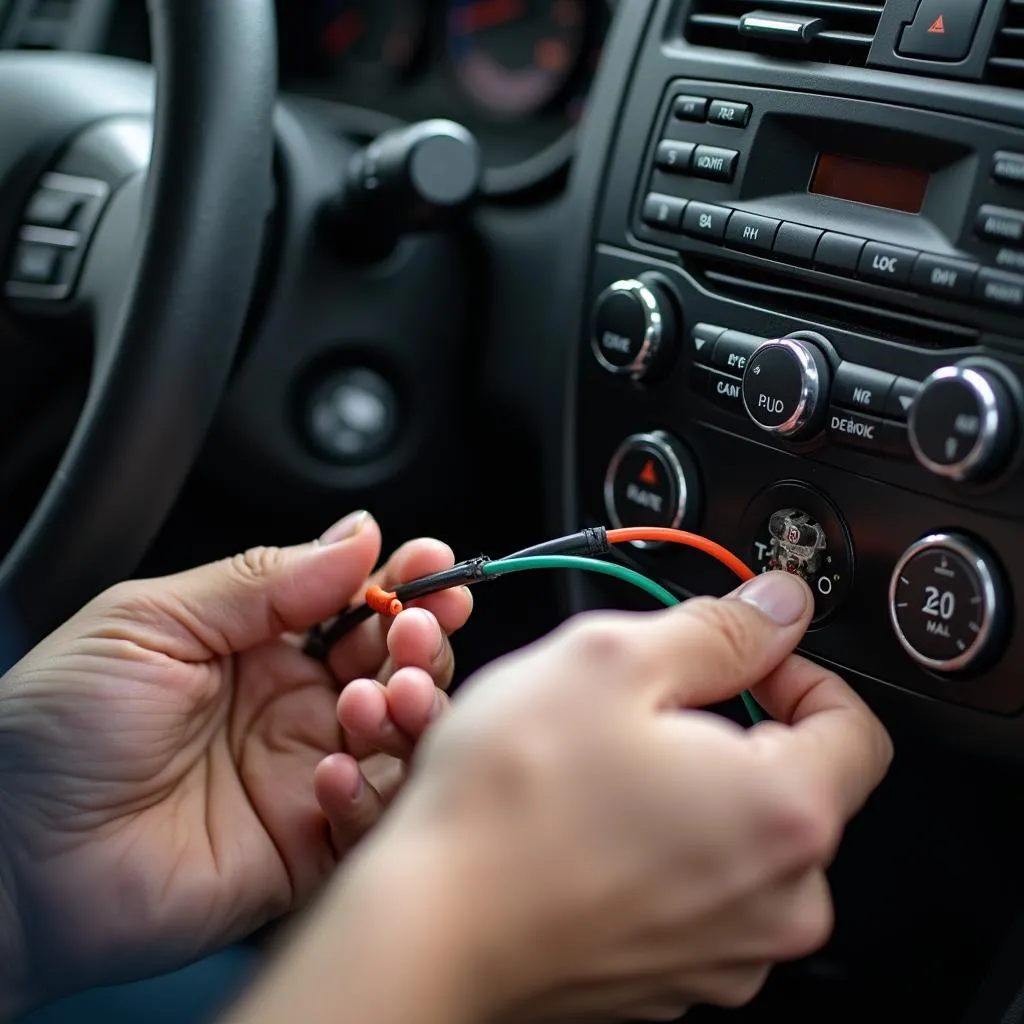Experiencing a brake warning light flickering on and off can be unsettling. This crucial signal usually indicates an issue with your vehicle’s braking system that requires attention. While a constantly illuminated brake light often signals a serious problem, an intermittent one can be trickier to diagnose.
This article will delve into the common causes of an intermittent brake warning light, outlining potential issues and offering guidance on how to address them.
Understanding Your Brake Warning Light
Your vehicle’s brake warning light is designed to alert you to potential problems within the braking system. When the light turns on, it doesn’t always indicate a complete brake failure. Instead, it acts as an early warning system, signaling that a component may be malfunctioning or nearing the end of its lifespan.
A constantly illuminated brake warning light typically points to a more serious issue requiring immediate attention. However, a brake warning light that turns on and off can be caused by a variety of factors, ranging from minor issues to more significant problems.
Common Causes of an Intermittent Brake Warning Light
1. Low Brake Fluid Level
One of the most common culprits behind a flickering brake warning light is low brake fluid. Your car’s braking system relies on hydraulic pressure to function correctly. When the brake fluid level drops below a certain point, it can trigger the warning light.
This drop in fluid level is often caused by worn brake pads or a leak in the system.
Expert Insight:
“Always check your brake fluid level first when you notice the warning light flickering. It’s a simple check that can save you a lot of trouble down the line,” says Jake Miller, a senior automotive engineer with over 20 years of experience.
2. Faulty Brake Fluid Level Sensor
While a low brake fluid level is a common culprit, a malfunctioning brake fluid level sensor can also trigger a false alarm. This sensor, usually located in the brake fluid reservoir, is responsible for detecting the fluid level and sending a signal to the warning light. Over time, the sensor can become corroded or damaged, leading to inaccurate readings and causing the light to illuminate erratically.
3. Worn Brake Pads
Brake pads are designed to wear down over time. As they wear thin, the brake caliper pistons need to extend further to apply the same amount of pressure to the brake rotors. This extension can lead to a lower brake fluid level in the reservoir, potentially triggering the warning light.
Expert Insight:
“Many modern vehicles are equipped with brake pad wear sensors that trigger a separate warning light. However, if your car doesn’t have this feature, a flickering brake warning light could indicate it’s time for new brake pads,” explains Sarah Chen, a certified mechanic and automotive instructor.
4. Air in the Brake Lines
Air in the brake lines can compress, leading to a “spongy” brake pedal feel and potentially triggering the brake warning light intermittently. Air can enter the lines during brake fluid replacement if the system isn’t properly bled, or it can be a sign of a leak in the system.
5. ABS System Issues
Most modern vehicles come equipped with an Anti-lock Braking System (ABS). While the ABS has a dedicated warning light, a problem within the system can sometimes trigger the regular brake warning light as well, especially if it’s related to the hydraulic control unit or wheel speed sensors.
6. Electrical Issues
Like any electrical system, the wiring and connections related to your brake warning light are susceptible to wear and tear. A loose connection, corroded wire, or faulty switch can cause the light to behave erratically.
Troubleshooting an Intermittent Brake Warning Light
If your brake warning light is turning on and off, it’s crucial to address the issue promptly. Here are some steps you can take:
- Check the Brake Fluid Level: As the most common culprit, start by inspecting your brake fluid reservoir. If the level is low, carefully top it off with the recommended brake fluid type for your vehicle.
- Inspect for Leaks: Look for any signs of brake fluid leaks around the brake lines, calipers, and master cylinder. Leaks can lead to a drop in fluid level and introduce air into the system.
- Check the Brake Pads: If your brake pads are significantly worn, replacing them can potentially resolve the issue, especially if the low brake fluid level is a contributing factor.
- Consult a Professional: If you’re unable to pinpoint the cause of the issue or are uncomfortable performing the necessary repairs, it’s best to consult a qualified mechanic. They can diagnose the problem accurately and recommend the appropriate course of action.
Conclusion
An intermittent brake warning light is a sign that something isn’t quite right with your vehicle’s braking system. While the cause might be something as simple as low brake fluid, it’s crucial not to ignore this warning. By addressing the problem promptly and proactively, you can ensure your safety and prevent further damage to your vehicle. Remember, when it comes to your brakes, err on the side of caution and seek professional help if needed.

